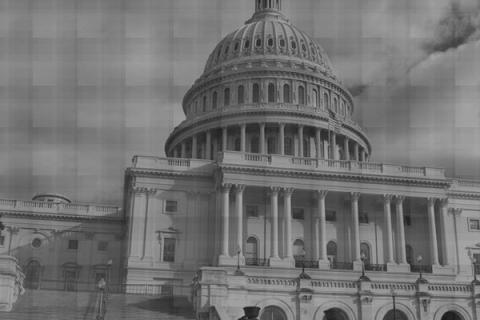
The Commission on Presidential Debates, the tax-exempt organization responsible for putting on the national presidential debates, has been under intense public scrutiny for excluding third party candidates Gary Johnson and Jill Stein from the debates, and activist groups are now questioning who actually finances them. It seems that presidential debate funding is often convoluted and highly protected.
This year's debates are sponsored by Anheuser-Busch, Southwest Airlines, International Bottled Water Association, The Howard G. Buffet Foundation, Sheldon S. Cohen, Esq., Crowell & Moring LLP, and The Kovler Fund.
After heavy petitioning from activist groups, three sponsors -- Phillips Electronics, YWCA, and BBH New York -- withdrew their support last week due to possible perceived bipartisanship of the CPD.
Phillips issued the following statement Friday through an e-mail sent to multiple people: "While the Commission on Presidential Debates is a non-partisan organization, their work may appear to support bi-partisan politics. We respect all points of view and, as a result, want to ensure that Philips doesn't provide even the slightest appearance of supporting partisan politics. As such, no company funds have been or will be used to support the Commission on Presidential Debates."
It seems that the CPD would like to have it appear that these remaining national sponsors are the only contributors paying for the debate, but their 903 tax forms filed with the IRS indicate that there are more donors whose names and donations are being withheld by the CPD.
The 903 filing shows that from 2005 to 2009, the CPD received $7,173,145 in total support.
On page 14, the document states the contributions received by the CPD each year since 2005. Furthermore, it reads, "The portion of total contributions by each person (other than a governmental unit or publicly supported organization) included on line 1 that exceeds 2% of the amount shown on line 11, column (t)." "0" is marked in the total amount for that item.
This means that no national sponsor gave more than $143,462.90 (2 percent of line 11, column f).
There are two possibilities according to Help the CPD activist Rick Stewart. "Somebody or a group of somebodies gave a total of $6,946,471, which means there had to have been quite a few of them."
The other possibility is, "some or all of the $6,946,471 came from a different 501(c)(3) organization," said Stewart.
In 2004, the CPD took in over $4.1 million and more than 93 percent came from six contributors, according to The Center for Public Integrity. The CPI also requested and received a donor list in which, "the commission blanked out the names of all six."
Nonprofit organizations are not legally required to make this information public, but the CPD, an organization dedicated to non-partisanship and providing the best possible information to its viewers, is suspicious in its discretion.
According to the CPD's Executive Director Janet Brown, who has received $1.6 million in the past nine years for her services, the commission is similar to most non-profits in their fundraising efforts. A report from the CPI says, "[The CPD] seeks funding from foundations, corporations, individuals, and the debate sites themselves. [Brown] insists that no funder has ever asked for a topic or question to be introduced in the debates."
The CPD's conflict of interest policy states that it "ensures compliance with its conflict of interest policy in multiple ways. The commission's transactions are few enough in number that the executive director is able to monitor for any transaction that might implicate the policy." However, the CPD's reluctance to reveal the specific foundations, corporations and individuals that donate to theme raises eyebrows, as the involved contributors may, in fact, pose a conflict of interest in the supposedly non-partisan debates.
IVN contacted the CPD office in Washington, but could not be reached for comment.
